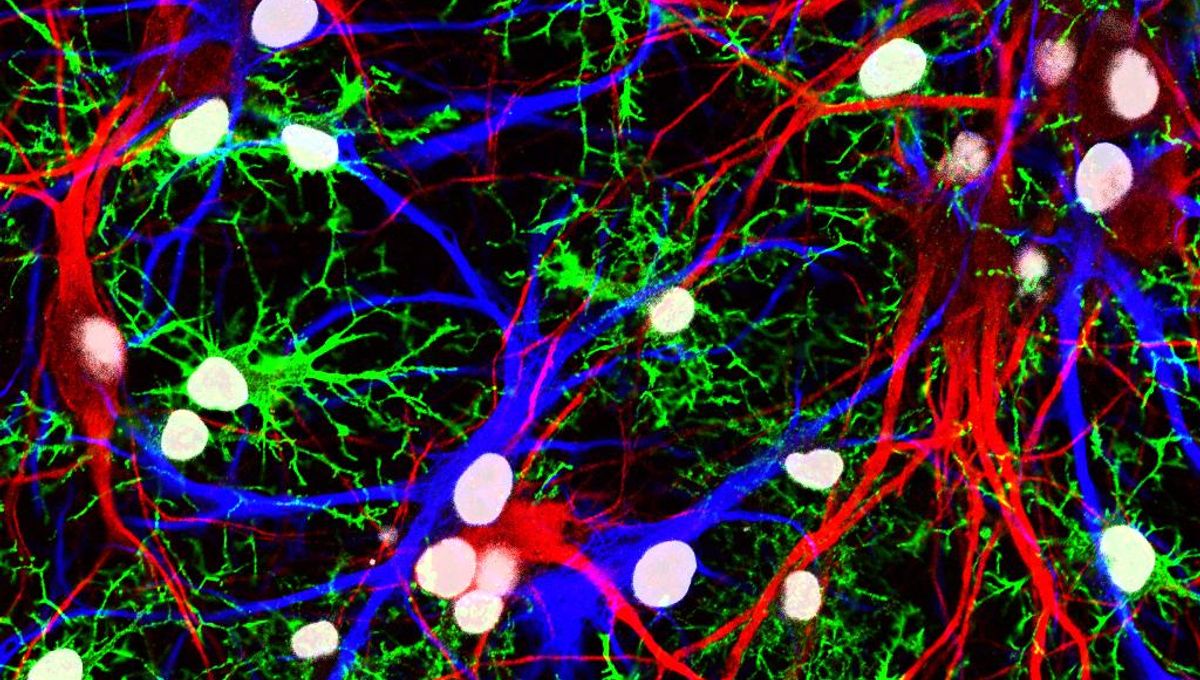
A protein that’s central to brain aging has been discovered by scientists, who’ve gone the extra mile by also finding out how it can be stopped. FTL1, as it’s called, is a key mediator of aging in the hippocampus – a part of the brain that’s particularly badly affected as the years roll by.
As much as people have tried – and boy, have they tried – there is as yet no way to halt the inexorable march of time and its effects on the human body. In order to tackle aging, scientists first have to understand exactly how it works – what proteins and genes are involved, and how they impact different organs and systems in the body. This new study helps answer some of those long-standing questions as they apply to the brain.
“It’s a hopeful time to be working on the biology of aging,” said senior author Saul Villeda, PhD, associate director of the Bakar Aging Research Institute at the University of California, San Francisco, in a statement.
The team’s study compared old and young male mice. In mouse terms, “old” means 18-22 months of age, and “young”, 2-3 months.
Focusing in on the hippocampus – the seahorse-shaped (if you squint) structure at the heart of the brain’s limbic system with vital roles in learning and memory – the team looked for any proteins that differed between the old and young mice. Helpfully, there was just one: FTL1.
Ferritin light chain 1, to give it its full name, is involved in the long-term storage of iron, a vital nutrient. The team saw that its levels were increased in the aged brains, which they suggest in their paper is “likely reflective of changes in brain iron metabolism during aging.”
Further analysis suggested that extra FTL1 could also negatively affect the mitochondria, each cell’s own mini power station.
“Collectively, this body of work posits changes in mitochondria dynamics, and structural alterations to the inner membrane, as potential downstream mechanisms regulating the pro-aging effects of increased neuronal FTL1,” the authors write.
To test their observations, they artificially increased levels of FTL1 in the brains of the young mice. Sure enough, their brains began to appear older, and they exhibited behavioral signs consistent with advancing age on tests such as navigating a maze and recognizing objects.
They did the same with mouse neuronal cells grown in Petri dishes. Those that had been engineered to produce lots of FTL1 had many fewer branches, or neurites, coming off them.
Excitingly, the opposite was also true. When the FTL1 was artificially decreased in the brains of the older mice, their nerves began making lots of connections again, and they performed better on the cognitive tests.
“It is truly a reversal of impairments,” said Villeda. “It’s much more than merely delaying or preventing symptoms.”
Armed with this knowledge, the team hopes to set the stage for new, targeted anti-aging drugs.
“We’re seeing more opportunities to alleviate the worst consequences of old age,” said Villeda.
As well as helping stave off the cognitive impacts of aging, they believe there could be more far-reaching consequences. Rare mutations in the Ftl1 gene in humans cause a disease called neuroferritinopathy, where iron buildup in the brain causes progressive difficulties with movement, swallowing, and speaking. There’s also some evidence that iron metabolism is altered in Alzheimer’s disease.
The team concludes, “[O]ur data raise the exciting possibility that the beneficial effects of targeting neuronal FTL1 at old age may extend more broadly, beyond cognitive aging, to neurodegenerative disease conditions in older people.”
The study is published in Nature Aging.
Source Link: “Truly A Reversal”: Scientists Find Protein That Causes Brain Aging, And Learn How To Stop It